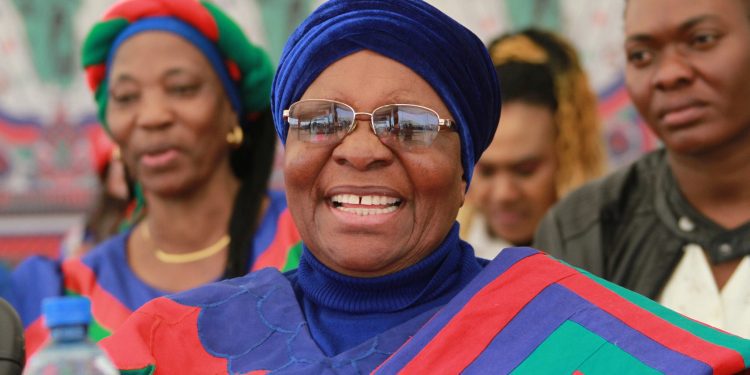Netumbo Nandi-Ndaitwah, 72, made history on December 3, 2024, by becoming Namibia’s first female president. The former vice president’s victory followed a contentious election, marred by logistical hurdles that forced a postponement of voting from November 27 to November 30.
The delay stemmed from a shortage of ballot papers and malfunctions in the electronic tablets used for voter registration. Long queues of frustrated voters, some waiting up to 12 hours, defined the first day. Rather than restarting the process, electoral officials extended the voting period to allow more citizens to participate.
Opposition Alleges Foul Play
Namibia’s main opposition party, the Independent Patriots for Change (IPC), strongly contested the election results. IPC’s presidential candidate Panduleni Itula, 67, accused authorities of deliberate irregularities aimed at suppressing voters.
“There were a multitude of irregularities,” said Itula. “The IPC shall not recognize the outcome of that election and will fight… to nullify the elections through the processes established within our electoral system.”
Despite these objections, the Electoral Commission of Namibia (ECN) declared Nandi-Ndaitwah the winner with a commanding 57% of the vote. Itula followed with 25.5%. This result cements SWAPO’s dominance over the nation, which it has governed since independence from apartheid South Africa in 1990.
SWAPO’s Influence Holds Strong
Nandi-Ndaitwah’s victory reflects SWAPO’s enduring influence, especially among older and rural voters loyal to its liberation-era roots. As a senior SWAPO leader, she leveraged this support while pledging economic reforms.
“Creating jobs by attracting investments using economic diplomacy,” she promised during her campaign.
However, the election also exposed cracks in SWAPO’s long-standing grip on power. IPC’s growing support among younger, urban voters highlighted frustration with unemployment and economic inequality. Imms Nashinge, an IPC spokesperson, reaffirmed the party’s determination to challenge the results:
“We shall not be robbed nor denied our democratic right to choose our leaders.”
Observers Criticize Election Delays
Election observers from a southern African human rights group criticized the delays as widespread and possibly deliberate. The ECN admitted to logistical failures, including ballot paper shortages and malfunctioning registration devices. Despite these issues, voter turnout reached nearly 77% of Namibia’s 1.5 million registered voters.
ECN chairperson Elsie Nghikembua called for unity in her post-election remarks:
“Fellow Namibians, elections are competitive by nature, but democracy calls upon us to unite once the votes have been counted. I urge all Namibians to embrace the results with the spirit of unity, diversity, understanding, and reconciliation.”
A Leader with Big Challenges Ahead
Nandi-Ndaitwah, affectionately known as NNN, has long been a SWAPO stalwart. A conservative leader and daughter of an Anglican pastor, she became vice president in February 2024. Her campaign highlighted her experience and stability, often symbolized by her gold-framed glasses and the blue, red, and green colors of SWAPO and Namibia’s national flag.
Her presidency comes at a time when Namibia grapples with significant socioeconomic challenges. Youth unemployment among those aged 15 to 34 stands at 46%, nearly three times the national average. While Namibia boasts abundant uranium and diamond resources, analysts note that its wealth has yet to translate into widespread infrastructure improvements or job creation for its nearly three million citizens.
As president, Netumbo Nandi-Ndaitwah faces the critical task of fulfilling her campaign promises and addressing these pressing issues. Her leadership will shape the next chapter of Namibia’s journey toward inclusive growth and equitable prosperity.



